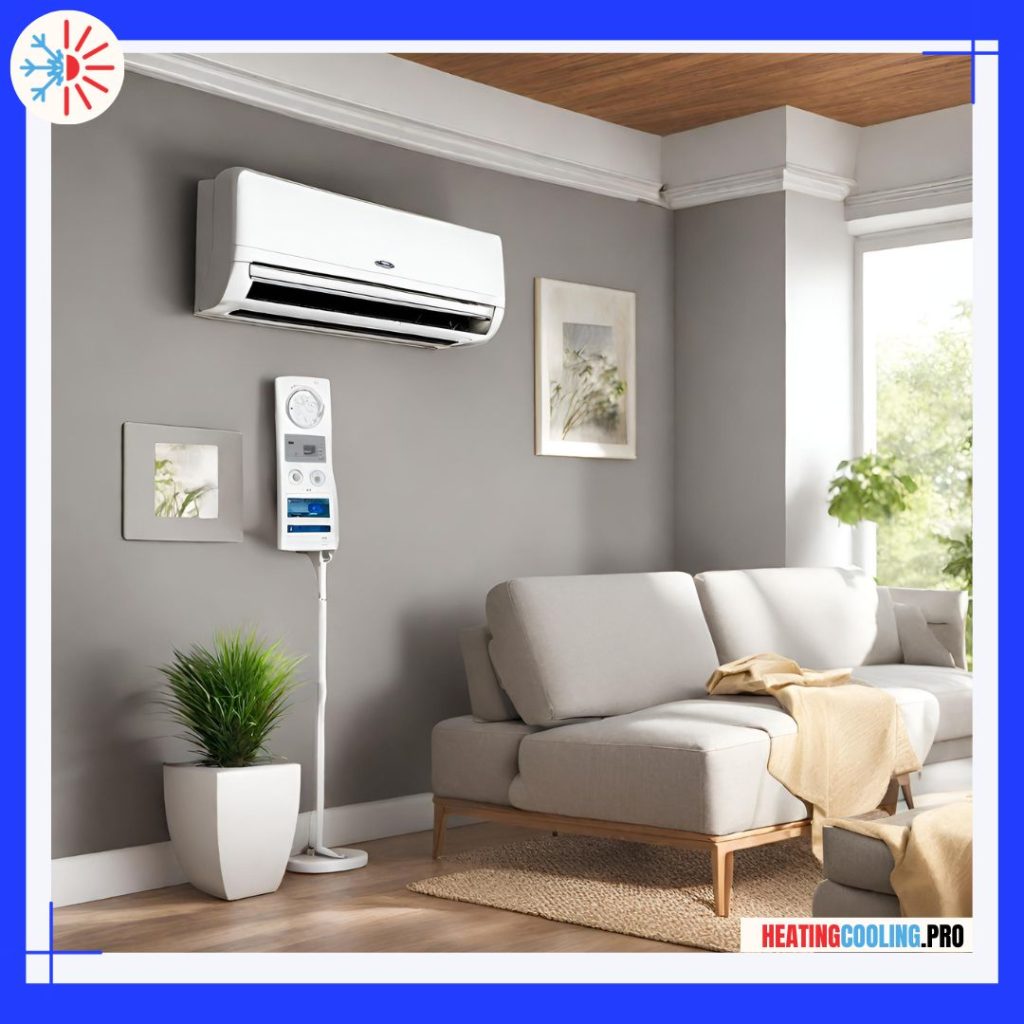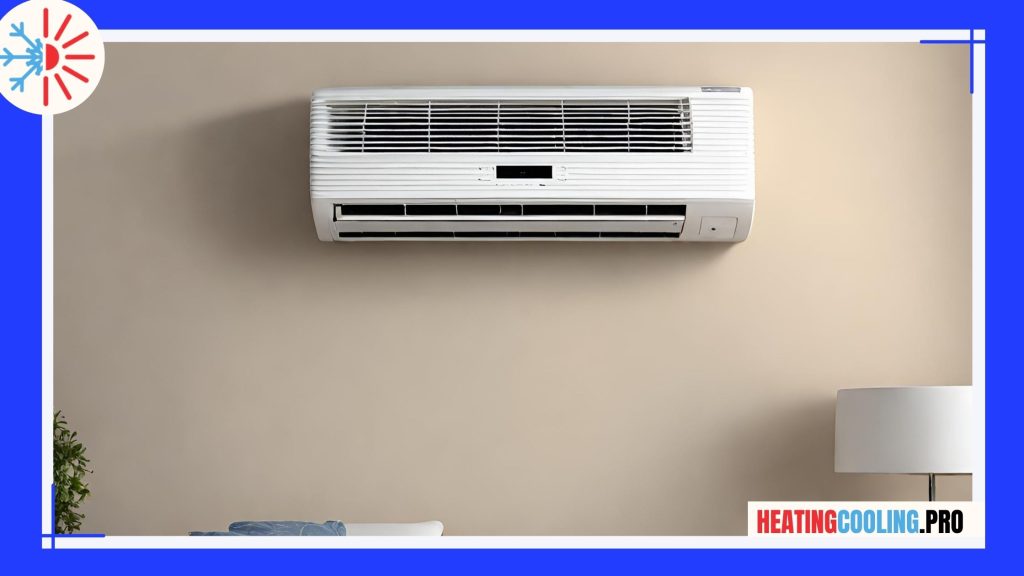Ductless air conditioners, also known as mini-split systems, have been gaining popularity in recent years as a viable cooling solution for homes and businesses. These innovative systems offer a range of benefits, making them a practical alternative to traditional central air conditioning. In this article, we’ll explore the advantages of ductless air conditioners, how they work, their installation and maintenance, and compare them to central AC systems. We’ll also delve into common applications, the environmental impact, and considerations when choosing a ductless AC unit. By the end of this article, you’ll have a comprehensive understanding of whether ductless air conditioners are a good choice for your cooling needs.
What Is The Disadvantage Of Ductless Ac?
There are a few disadvantages of ductless air conditioning. One is that the systems are more expensive than traditional window units or central air conditioning. They also require professional installation, so you’ll need to hire a technician to install it for you. Additionally, the systems don’t work as well in very cold climates.

While ductless air conditioners offer numerous advantages, it’s important to consider their disadvantages as well. Here are some of the potential drawbacks you should be aware of:
- 1. Initial Cost Ductless AC units can be more expensive upfront compared to traditional window units or central air systems. The cost includes the purchase of the indoor and outdoor units, as well as installation.
- 2. Aesthetics The indoor units of ductless systems are visible on the wall or ceiling, which may not be aesthetically pleasing to everyone. While they are sleek and modern in design, some homeowners prefer a more concealed look.
- 3. Professional Installation Installation of ductless air conditioners typically requires a professional technician. This can add to the overall cost and may necessitate finding a qualified installer.
- 4. Limited Coverage Ductless AC units are designed for cooling specific zones or rooms. If you have a larger space, you may need multiple units, which can further increase the initial investment.
- 5. Maintenance While maintenance is generally straightforward, it’s essential to keep the filters and coils clean. Neglecting maintenance can lead to reduced efficiency and performance issues.
- 6. Noise Level Some users find the indoor unit’s fan and compressor noise to be slightly more audible than central AC systems. However, newer models are designed to be quieter.
- 7. Compatibility Ductless air conditioners may not be suitable for all buildings or setups. Some homes or commercial spaces may not have an ideal location for outdoor unit installation.
It’s crucial to weigh these disadvantages against the benefits to determine if ductless air conditioners are the right choice for your cooling needs. Keep in mind that the significance of these drawbacks can vary based on individual preferences and specific circumstances.
What Does A Ductless Air Conditioner Cost?
A ductless air conditioner, also known as a mini-split air conditioner, is a great option for cooling a single room or zone in your home. They are typically more expensive to install than a traditional window or central air conditioner, but they can be a great investment if you are looking to cool a specific area of your home.

The cost of a ductless air conditioner will vary depending on the size of the unit, the brand, and the features that you choose. On average, you can expect to pay between $1,000 and $3,000 for a ductless air conditioner. If you are interested in installing a ductless air conditioner in your home, be sure to consult with a qualified HVAC contractor to discuss your options and get a quote for the installation.
The cost of a ductless air conditioner can vary widely depending on several factors. It’s essential to understand the pricing structure and what influences the overall cost of these systems. Here are the key factors that contribute to the price of a ductless air conditioner:
- 1. Number of Zones The number of indoor units you need will significantly impact the cost. Each indoor unit serves a specific zone or room, and the more units you require, the higher the overall cost.
- 2. BTU Capacity The cooling capacity of the unit is measured in British Thermal Units (BTUs). Units with higher BTU ratings are more powerful and, consequently, more expensive. It’s essential to select a capacity that matches the cooling needs of the space.
- 3. Brand and Model Different manufacturers offer a range of models with varying features and quality. Premium brands tend to be pricier, but they may come with added benefits, such as energy efficiency and advanced technology.
- 4. Installation Complexity The complexity of the installation process can affect the cost. If your home or building requires significant modifications or additional electrical work, the installation cost will increase.
- 5. Energy Efficiency Highly efficient ductless air conditioners often come at a higher initial cost but can lead to long-term energy savings. Look for units with a high Seasonal Energy Efficiency Ratio (SEER) rating.
- 6. Accessories and Features Additional features like Wi-Fi connectivity, advanced filtration, and smart thermostats can add to the price. Consider which features are essential for your comfort and convenience.
- 7. Warranty The length and coverage of the warranty can influence the cost. Units with extensive warranties may cost more initially but provide added peace of mind.
- 8. Professional Installation Hiring a qualified technician for installation is crucial, and their fees are a part of the overall cost. While it may add to the upfront expenses, professional installation ensures the system’s proper functioning.
On average, a single-zone ductless air conditioner can cost anywhere from $1,500 to $4,000, including installation. For multi-zone systems with multiple indoor units, the cost can range from $5,000 to $15,000 or more. It’s advisable to obtain quotes from reputable HVAC contractors to get a precise estimate tailored to your specific requirements.
Remember that while the initial cost of ductless air conditioners can be higher than other options, their long-term energy efficiency and zoned cooling benefits may make them a cost-effective and comfortable choice for many homeowners.
Is Ductless Ac Cheaper To Run?

Ductless air conditioning systems, also known as mini-split systems, offer a number of benefits over traditional central air systems, including energy efficiency, space savings, and installation flexibility. But one of the most common questions homeowners have about ductless AC is whether or not it is cheaper to run than a traditional system.
The answer to this question depends on a number of factors, including the size of your home, the climate you live in, and the type of ductless AC system you install. However, in general, ductless AC systems are more energy efficient than traditional central air systems, and can save you money on your energy bills. Ductless AC systems use a small number of indoor units to cool your home, while a traditional central air system uses a large number of outdoor units. This means that a ductless AC system can cool your home more efficiently, because it does not have to work as hard to distribute cool air throughout your home.
How Many Rooms Can A Ductless Ac Cool?
Ductless ACs, also known as minisplits, are a great way to cool a single room or several rooms without the expense and hassle of installing ductwork. But just how many rooms can a ductless AC cool? The answer to that question depends on a number of factors, including the size of the room, the type of ductless AC unit, and the climate conditions. In general, a single-zone ductless AC can cool a room up to 400 square feet, while a multi-zone unit can cool several rooms at once.
Keep in mind that the cooling capacity of a ductless AC unit also depends on the ambient temperature and humidity level. If you live in a hot, humid climate, you may need a unit with a higher cooling capacity to adequately cool your home.
If you’re not sure how many rooms your ductless AC can cool, consult the specifications for your specific unit, or contact the manufacturer for more information Ductless AC units are a great way to cool your home without having to install ductwork. However, the cooling capacity of a ductless AC unit also depends on the ambient temperature and humidity level. If you live in a hot, humid climate, you may need a unit with a higher cooling capacity to adequately cool your home. If you’re not sure how many rooms your ductless AC can cool, consult the specifications for your specific unit, or contact the manufacturer for more information.
Do You Need Ductless Ac In Every Room?

When it comes to cooling your home, there are a few things you should take into account. The climate of your area, the size and layout of your home, and your personal cooling preferences are all important factors to consider when choosing the right air conditioning system. One option you might have is ductless AC. Ductless AC is a great choice for homes without ductwork, or for rooms that don’t have a window to install a traditional air conditioner. Ductless AC systems consist of an outdoor unit and one or more indoor units.
The indoor units can be mounted on a wall or suspended from the ceiling. Ductless AC is a great choice for homes without ductwork, or for rooms that don’t have a window to install a traditional air conditioner. If you’re considering ductless AC, you may be wondering if you need one for every room. The answer to that question depends on a few factors , including the size of the room, how much insulation you have, and how hot it gets in the room. Ductless AC systems come in two types: mini-split and multi-split. A mini-split system has one outdoor unit and one or more indoor units. A multi-split system has multiple outdoor units and one or more indoor units.
If you’re only looking to cool one or two rooms, a mini-split system is a good option. If you’re looking to cool a whole house, a multi-split system is a better option. Multi-split systems are also a good option for homes with multiple stories, since each floor can have its own indoor unit. The size of the room is also a factor. A mini-split system is typically good for rooms up to 500 square feet, while a multi-split system can cool rooms up to 1,500 square feet. If you have a lot of windows or if your home is in a hot, sunny climate, you may need a system with higher cooling capacity.
Is Ductless Ac Noisy?
Ductless AC is a type of air conditioning system that does not require ductwork. This type of system is growing in popularity because it is more energy efficient than traditional AC systems and it can be installed in a variety of applications, including homes, offices, and retail stores.

One of the main concerns people have about ductless AC systems is whether or not they are noisy. The answer to this question depends on the specific system and the installation location. Some ductless AC systems are louder than others, and some locations may be more conducive to noise than others.
That being said, most ductless AC systems are designed to be quiet and unobtrusive. If you are concerned about noise levels, it is important to consult with a qualified contractor to discuss your specific needs and preferences.
Can Ductless Ac Be Installed In Any House?
Ductless air conditioning systems offer flexibility in terms of installation, making them suitable for various types of homes. However, there are some factors to consider when determining whether ductless AC can be installed in your house.
- Single-Family Homes: Ductless AC can be installed in most single-family homes, whether they are one-story or multi-story. These systems are particularly well-suited for older homes without existing ductwork.
- Apartments and Condos: Ductless AC can also be installed in apartments and condominiums. In multi-unit buildings, it’s essential to obtain permission from the building management or homeowners’ association and follow any relevant guidelines.
- Houses with Existing Ducts: If your house already has a ductwork system in place, you can choose between ductless AC and central AC. While ductless systems offer advantages, central AC may be a more straightforward option if your ducts are in good condition.
- Houses without Ducts: Ductless AC is an ideal choice for homes without existing ductwork. It eliminates the need for extensive renovations to install ducts, which can be a significant cost and time saver.
Ductless AC units require wall or ceiling space for installation. The indoor unit is typically mounted high on the wall or recessed into the ceiling. Ensure you have suitable space and the structural support to accommodate the unit.
- Electrical Service Ductless air conditioners require access to electrical service for both the indoor and outdoor units. The electrical capacity of your home should be sufficient to support the added load of the system.
- Outdoor Unit Placement Ductless systems have an outdoor condenser unit. You need an appropriate location for outdoor unit installation. This location should have proper ventilation, be free from obstructions, and comply with local zoning regulations.
- Local Regulations and Permits It’s essential to check local building codes and regulations related to HVAC installations. Some areas may have specific requirements for the installation of ductless AC units.
- Professional Assessment Before installing a ductless air conditioner, it’s advisable to have a professional HVAC technician assess your home. They can determine the most suitable location for indoor and outdoor units, assess your electrical service, and provide guidance on system sizing.
Ductless AC is a versatile cooling solution that can be installed in a wide range of homes, making it an attractive option for many homeowners. However, it’s crucial to ensure that your house meets the necessary requirements and that you comply with local regulations to enjoy the benefits of ductless air conditioning.
Ductless AC vs. Central AC
When it comes to choosing a cooling system for your home or business, you’ll likely consider two primary options: ductless air conditioners (mini-split systems) and central air conditioning. Each system has its advantages and disadvantages, and the choice between them depends on your specific needs and preferences. Let’s compare ductless AC to central AC to help you make an informed decision.
Installation and Ductwork
- Ductless AC: Ductless systems are easier to install because they don’t require the extensive ductwork associated with central AC. This makes them a more flexible option, especially for older homes that lack ducts.
- Central AC: Central AC systems rely on ducts to distribute cool air throughout the building. If your property doesn’t have existing ductwork, installation can be a major undertaking, potentially increasing costs.
Zoned Cooling
- Ductless AC: Ductless systems excel at zoned cooling. Each indoor unit can be controlled independently, allowing you to cool specific areas or rooms only when needed. This precise temperature control can lead to energy savings.
- Central AC: Central air conditioning typically cools the entire house at once. Zoning is possible with central AC, but it’s more complex and may require additional equipment.
Energy Efficiency
- Ductless AC: Ductless air conditioners are known for their energy efficiency. The absence of ductwork, zoned cooling, and inverter technology make them an economical choice in the long run.
- Central AC: Central AC systems can be energy-efficient, but the efficiency often depends on the quality of ductwork and the overall design. Ducts with leaks or poor insulation can lead to energy loss.
Cost
- Ductless AC: Ductless systems tend to have a higher upfront cost, particularly for multi-zone setups. However, their energy efficiency can result in lower long-term operating costs.
- Central AC: Central AC systems often have a lower initial cost, but the cost can vary depending on the complexity of the installation and the need for ductwork.
Aesthetics
- Ductless AC: Indoor units of ductless systems are visible on the wall or ceiling. While their design is sleek and modern, some people may find them less aesthetically pleasing.
- Central AC: Central AC is more discreet, with most of the equipment located outside or in a utility area. However, the ductwork can affect the aesthetics of the space.
Maintenance
- Ductless AC: Maintenance is relatively straightforward, with routine cleaning of filters and coils. This ensures efficient operation.
- Central AC: Central AC systems require maintenance for both the central unit and the ducts. Leaks, blockages, and insulation issues in the ductwork may need attention.
Ultimately, the choice between ductless AC and central AC depends on your specific requirements, budget, and preferences. Ductless AC offers greater flexibility, energy efficiency, and zoned cooling, while central AC is generally more cost-effective upfront and may be preferable for homes with existing ductwork. Consider your unique circumstances to determine which system best suits your needs.
Conclusion
Ductless air conditioners, often referred to as mini-split systems, have emerged as a popular and efficient cooling solution for a wide range of homes and businesses. In this article, we’ve explored the advantages of ductless AC, how they work, potential disadvantages, and their cost compared to central AC systems. We’ve also delved into the practical applications, environmental impact, and considerations when choosing a ductless air conditioner.
Ductless AC systems offer numerous benefits, including zoned cooling, energy efficiency, and flexibility. They are particularly well-suited for homes without existing ductwork and provide a cost-effective solution for personalized comfort. While they come with some drawbacks, such as the initial cost and aesthetic considerations, these factors can often be outweighed by the advantages they offer. When it comes to installation, ductless air conditioners can be a viable option for various house types, whether it’s a single-family home, an apartment, or a condominium. They are an ideal solution for homes without ducts, eliminating the need for extensive and costly ductwork installation.
In conclusion, whether ductless air conditioners are a good choice for your specific cooling needs depends on various factors, including your home type, budget, and preferences. To make an informed decision, it’s essential to consider the advantages and disadvantages, assess your home’s suitability, and consult with a professional HVAC technician for guidance. Ductless AC systems continue to gain popularity for their energy efficiency, zoning capabilities, and ease of installation. If these qualities align with your requirements, you may find that ductless air conditioning is an excellent choice to keep your space cool and comfortable.






